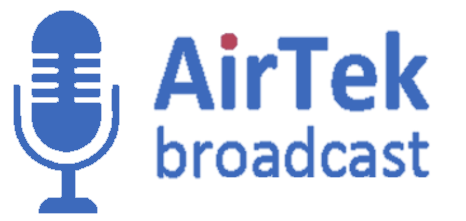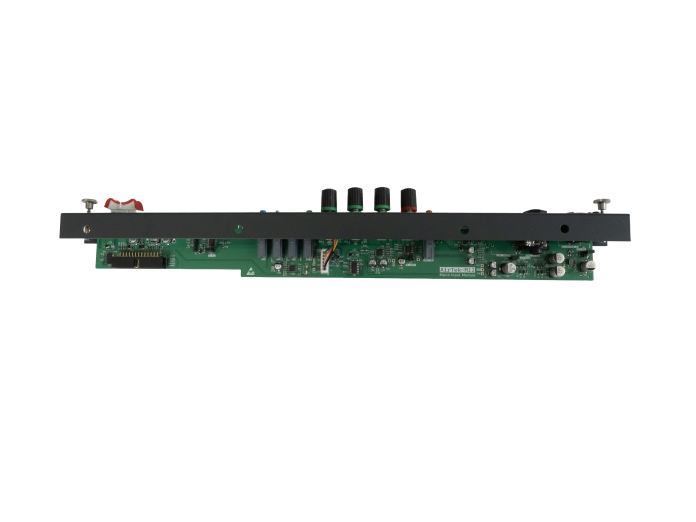SOLUTIONS FOR EVERY BROADCASTER
Private Commercial stations
Private Commercial stations will need new studio equipment for a number of reasons:
- They are a new-start without any equipment
- They have existing facilities which are old and need upgrading due to reliability and maintenance issues
- Existing facilities do not meet current operational requirements
- They are re-locating
Considerations
- Selection of most appropriate technology
- Ongoing support availability and costs – long term cost of ownership
- Re-usability of existing equipment and connectivity
- Speed of installation and studio down-time
- Costs
Concerns
- Being ‘over-sold’ on technology
- Ability to support largely software based hi-tech equipment and systems
- Learning curve for operators
- Need to replace connectivity infrastructure
- Impact on ongoing operations during installation and training phases
Our approach
With many decades experience of equipping private radio stations and networks of all sizes, we are uniquely positioned to offer practical advice on equipment selection.
If you are a new start why not download our comprehensive guide ‘Setting up a private radio station’.
Ian – how do we make them swap contact info in order to get this?
Organisations can include primary, secondary and further education establishments, as well as curriculum development bodies and distance learning providers.
Radio studios can be used in a number of ways:
- In support of core curricular courses such as media, journalism and broadcasting
- For creating distance learning programs
- For use as a ‘student’ radio station, giving students/pupils a voice in the community and beyond
- As a fun approach to learning, promoting teamwork, improving self-confidence and developing entrepreneurial skills in young folk, via a school radio project
- As a commercial ‘for hire’ radio production facility during non-teaching times, as a revenue generator e.g. for making corporate presentations or media training
Considerations
- There are potentially conflicting requirements in terms of studio equipment. For students being trained to become media professionals you want an environment that closely resembles that which they will experience in the ‘real world’.
- For a schools project the equipment should be simple to use and suitable for use by many pupils as a group activity.
- For the preparation of radio programs the focus would be more on production as opposed to live broadcast equipment, the same being true for corporate use.
Concerns
- Not prioritising uses
- Compromising on equipment selection – in terms of purpose
- Overspending!
Our approach
It is particularly important to define exactly what your objectives are.
Why not click here to access a document explaining ‘Radio in Education’.
Ian – how do we make them swap contact info in order to get this?
The fundamental difference between a private commercial station and a community station is generally that the commercial station is set up as a business with an aim to make profits, whereas the community station is generally a not for profit organisation.
Having said this, both can claim to serve the community and both will have similar equipment needs.
Community stations frequently find funding harder than for private operations.
Considerations
- Broadcast hours – a few hours per day, daytime, 24/7, weekly?
- How will the audience listen – online or terrestrial (typically FM), or both
- Licence implications – can be complicated
Concerns
- Staff- generally volunteers who may not have much previous experience
- Access to technical support for operations and maintenance
- Funding, under-estimating costs – capex and recurring
Our approach
Firstly you need to decide what you are trying to achieve.
You then need to decide a) how much you can spend and what can you get for that OR b) find out the costs of what you need and seek appropriate funding.
We have huge experience assisting community organisations and our in-country partners can often advise with licence applications and help you secure a frequency.
Remember that you will need a transmission system as well as your studio equipment!
Click here to access our ‘Community Radio Packages’ document.
Ian – how do we make them swap contact info in order to get this?
Normally the main Broadcast HQ will be located in the capital city, serving the largest population centre, creating programs which will be broadcast nationally via some form of distribution system, via local re-broadcast transmitters.
Typically this will include a number of program services, possibly offering different formats and different languages or dialects.
Considerations
- In addition there will often be regional or local studios located remotely from the capital, and their output usually includes a mix of locally generated content and programs originating at HQ which are re-broadcast locally.
- A means of receiving and integrating remotely originated programs with locally generated content is required.
Concerns
- It is not uncommon, and totally understandable, that the majority of budget allocation goes to the national HQ, often leaving scant funding for the outlying stations, many of whom are expected to run on ancient an often unmaintainable equipment.
- In such locations technical support can be limited, particularly as equipment and systems become more complex, requiring greater technical awareness and in many cases costly support from manufacturers.
Our approach
- A pragmatic selection of equipment type and technology.
- Equipment that is selected for ease of use, reliability and ease of maintenance, as opposed to the latest hi-tech wizardry.
- Fit for purpose, robustness, reliability and cost must be the deciding factors when choosing equipment
Check out the AirTek Aircaster M12 hybrid mixer, suitable for both on-air and production applications – ideal for remotely located studios that just have to keep working.
Brochure here
In many countries religion is still at the heart of many communities, informing, educating and hopefully entertaining audiences, spreading the Word and providing often much needed spiritual support.
Radio broadcasting within religious organisations is becoming increasingly popular, and still remains one of the most cost-effective means of communication.
Considerations
- How will the equipment be used – justifying the cost.
- Who will set-up and run the station – who will operate it.
- Who are we trying to reach?
- How do we get started?
- How can it be funded.
Concerns
- Finding answers to these questions!!!
Our approach
The best advice we can offer is to read our guide ‘The role of radio in religion’.
Due to increasing levels of complexity in modern studio equipment, and the increasing reliance on software, many System Integrators and Installers are becoming more reliant on support from manufacturers, support that can sometimes be erratic and frequently expensive.
Integrators and installers are often relied upon to make equipment recommendations, and whilst it can sound attractive to promote the latest technology, this is not always the most pragmatic solution, and ‘fit for purpose’ can often circumvent future support aggravation.
Considerations
- Recommending equipment that requires a lot of remote support, for configuration, operation and upgrades.
- Access to critical spare parts which may be required for support and maintenance
Concerns
- Clients who demand unrealistic levels of support due to operational issues, who simply don’t expect to pay for it (or can’t afford to)
- Being abandoned by manufacturers or dealers who pass the buck when it comes to support
- Financing – fears of being caught up in deferred final payment loops.
Our approach
We suggest that if you are being asked to make recommendations that you look at our AirTek solutions – not necessarily the latest tech, but guaranteed to do the job and make your life simple.
And we offer TREMENDOUS support!


Hi, this is a comment.
To get started with moderating, editing, and deleting comments, please visit the Comments screen in the dashboard.
Commenter avatars come from Gravatar.